2019 Achievement Award Recipients
Congratulations to the 2019 recipients of the Achievement Awards
The following awards are administered by the Office of the Provost and Vice-President (Academic) and recognize outstanding teaching achievements. Recipients of the Research Achievement Award are listed on the Office of the Vice-President (Research and International) website.
Teaching Achievement Award
Professional Achievement Award
Contract Instructor Teaching Award
Contract Instructor Teaching Innovation Grant
Teaching Achievement Award
The Teaching Achievement Awards are intended to enhance the teaching of their recipients and the quality of instruction at Carleton.
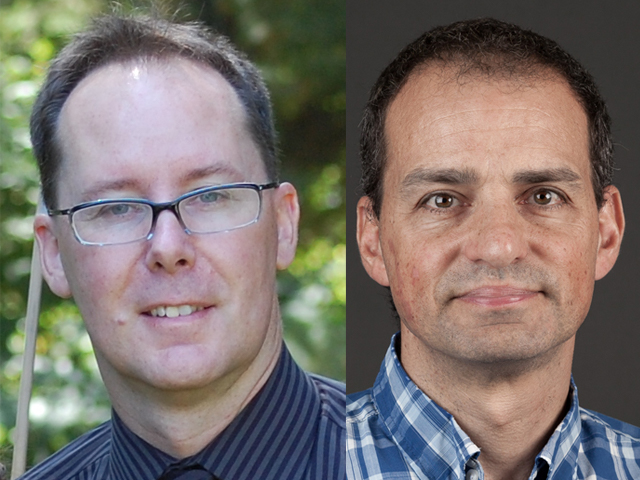
|
Jeff DawsonAssociate Professor, Biology, Faculty of Science Andy AdlerCanada Research Professor in Biomedical Engineering, Systems and Computer Engineering, Faculty of Engineering and Design Instrumentation for Human Performance – Instructional Modules for Interdisciplinary Collaborative Student-Centred LearningInstrumentation for measuring and improving human performance is becoming ubiquitous, whether for sport, rehabilitation or lifestyle. Effectively using and interpreting data from these devices, however, is inherently a multi-disciplinary challenge requiring knowledge spanning several disciplines. This award will realize a suite of student-centred modules that bring biology and engineering students together to work collaboratively on student-generated, authentic, research questions. The modules will facilitate new (or enhance current) courses by giving students real-world, practical, skills. |
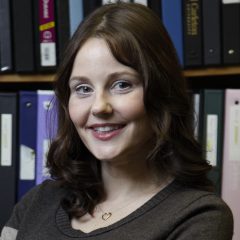 |
Cheryl HarasymchukAssociate Professor, Psychology Using Research Design in Psychology to Promote Experiential Learning in First Year SeminarsThis project will increase experiential learning in First Year Seminars in the Department of Psychology through the creation of a level-appropriate research design project. More specifically, the current proposal involves a year-long, group-based, research design project that focuses on the front-end of the psychology research process (e.g., design and ethical considerations) using templates (i.e., common research designs and essential articles) and assessment criteria created from this proposal. |
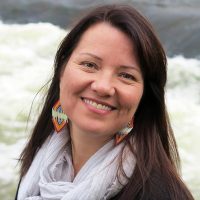
|
Kahente Horn-MillerAssistant Professor, Indigenous and Canadian Studies Collaborative Indigenous Learning BundlesThe Collaborative Indigenous Learning Bundles address the TRC recommendation for post-secondary institutions to increase the integration of Indigenous knowledge and teaching into the classroom. These bundles are a collection of online modules produced and delivered by Indigenous experts and are a resource for instructors that provide the necessary factual and theoretical basis for understanding Indigenous issues, while also prompting students to consider how this knowledge might be applied in their area of study. |
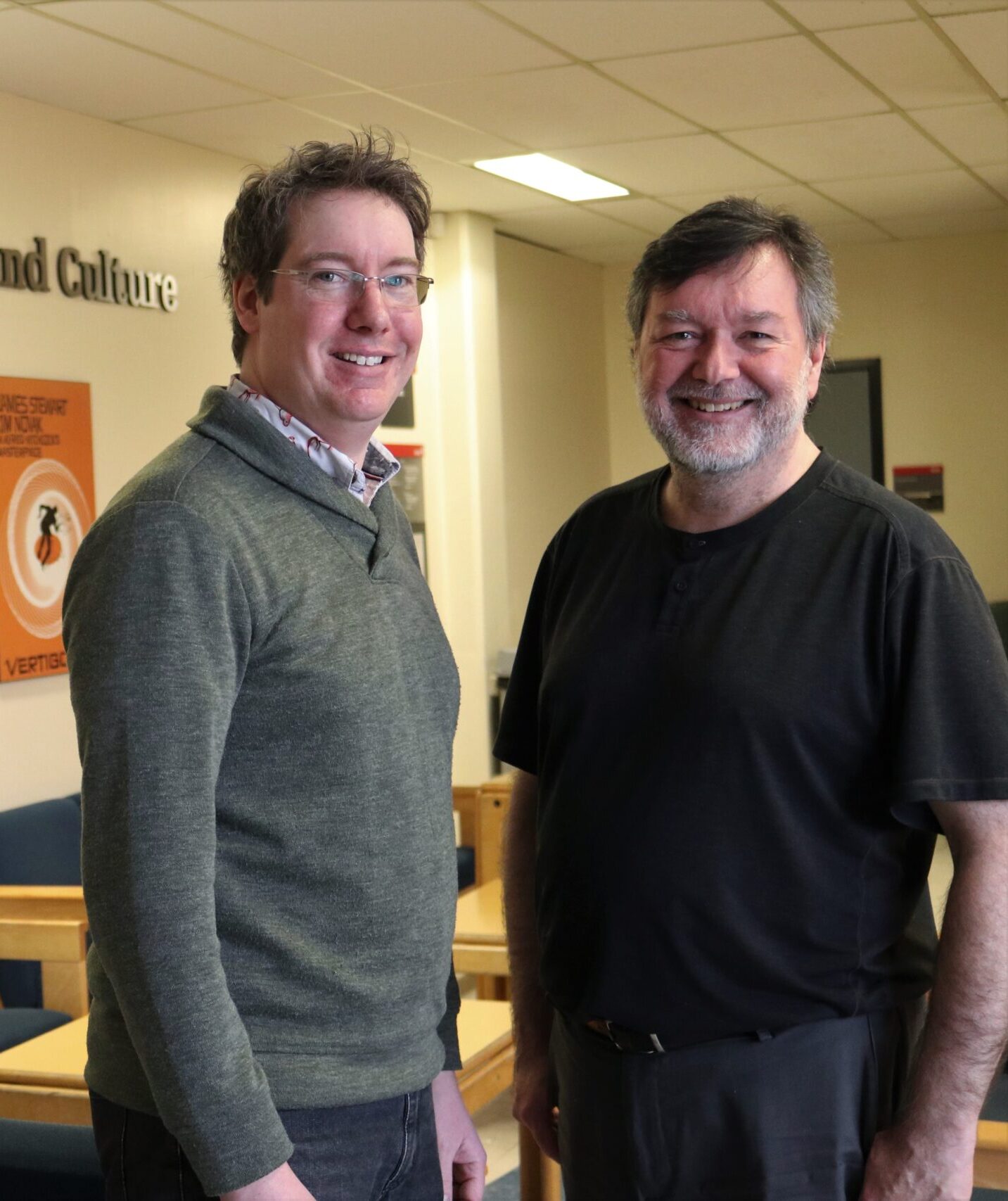 |
Michael WindoverAssociate Professor, Studies in Art and Culture, Faculty of Arts and Social Sciences Peter CoffmanAssociate Professor, Studies in Art and Culture, Faculty of Arts and Social Sciences The Virtual Museum of Architecture in OttawaThe Virtual Museum of Architecture in Ottawa will provide an opportunity for undergraduate students in the History and Theory of Architecture Program to develop and showcase their research, interpretive and communication skills as they contribute to a collection of multimedia “artefacts” about the region’s architecture and “curate” histories using them. The project will be integrated into the program’s core second- and third-year courses, a dedicated fourth-year seminar, and will produce a publicly accessible research resource. |
 |
Benjamin WooAssistant Professor Does Specifications Grading Add Up? Evaluating Alternative Approaches in University AssessmentWhat does a grade mean? There is increasing concern that traditional grades don’t measure meaningful learning. In her 2015 book, Specifications Grading: Restoring Rigor, Motivating Students, and Saving Faculty Time, Linda B. Nilson suggests a new approach to assessment that promises to give students greater agency and responsibility in their learning. Over the next two years, I will convene a group of colleagues to pilot this novel approach to assessment and report back to the University community. |
Professional Achievement Award
The Professional Achievement Awards recognize outstanding professional achievements at Carleton University for professional librarians and instructors.
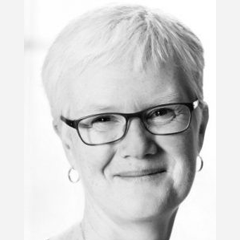 |
Martha Attridge BuftonLibrarian II, Interdisciplinary Studies Librarian, Research Support Services Martha Attridge Bufton engages in and supports innovative teaching, learning and research practices at Carleton University. In her role as a librarian and information literacy teacher, she actively seeks to understand learning processes and apply this knowledge to on-going initiatives that use high impact practices in both face-to-face and online learning environments. Her work, at Carleton and within the provincial, national and international library communities, also reflects a deep professional commitment to enacting the core library values of access to information and intellectual freedom by responding to the Truth and Reconciliation Commission of Canada (TRC) calls to action in support of building respectful relationships with First Nations, Métis and Inuit peoples—on campus and with Indigenous communities. |
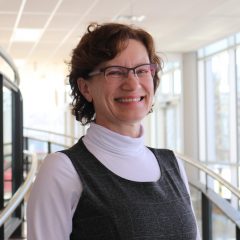 |
Erika BanskiLibrarian IV, Cataloguing, Metadata, and Digitization OCUL Collaborative Futures ProjectMy work in the Collaborative Futures Project of the Ontario Council of University Libraries (OCUL) focuses on the implementation of a new online Library Services Platform, Alma, by a consortium of 13 university libraries in Ontario, including Carleton University Library. My involvement at Carleton, as a member of the Library’s Implementation Team, is to lead the work of the Cataloguing, Metadata, and Digitization Department in upgrading and standardizing bibliographic, holdings, and item records to achieve metadata inter-operability for the data migration and going live phases. At the provincial level, as a member of the OCUL CF Metadata Management and Standards Subcommittee, I participate in the development of shared policies and procedures for metadata creation and management. |
 |
Robert CollierInstructor II Procedural Generation of Assignments for Computer ScienceThe procedural assignment generator project began as an effort to combat unauthorized collaboration in the introductory courses of the School of Computer Science. By developing algorithms that can describe specific activities, identification numbers can be used as sources of pseudorandom data for procedural generation. This will ensure that assignments share the same level of difficulty (while minimizing the probability of duplicate questions) and automatic marking programs can be used to ensure the consistency of assessment. |
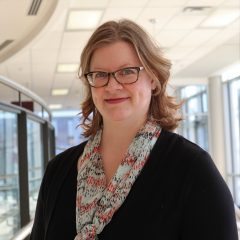 |
Erica FraserInstructor II Blended and Experiential Learning in First-Year Course DevelopmentMy project aims to redesign HIST 1002 (Twentieth Century Europe) in order to better incorporate a.) blended learning and the “flipped” classroom, and b.) experiential learning through research and skills workshops. Redesigning the lecture hours of the course to prioritize blended and experiential learning will allow students to access multimedia components on their own time and spend classroom time with guest workshop facilitators cultivating hands-on research tools that will serve them well in their careers. While these are more common techniques in upper level classes, they can also benefit first-year students. Blended and experiential learning requires careful scaffolding for these students, however, as they are still learning the ropes of time management, self-directed study, and university-level engagement with texts. |
 |
Kim HellemansInstructor III An animation on the Epigenetics of Psychiatric DiseaseFor my teaching development project, I would like to produce a new 5-minute animation on epigenetics. Essentially, this video would demonstrate how environmental events impact genes and genetic vulnerability to psychiatric illness. This video would be a key tool in teaching a fundamental concept in neuroscience, that would benefit students from 1st to 4th year and beyond. Critically, this video would also be available to the public as it would be hosted on the Carleton University YouTube channel. |
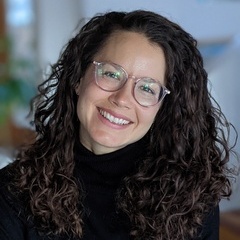 |
Marylynn SteckleyInstructor II Marylynn Steckley teaches in Global and International Studies, and is a critical geographer by training. Her teaching is guided by her intellectual background in the field of political ecology, and her passion to enliven her students to engage meaningfully in confronting global inequality. Marylynn Steckley aims to create engaging classrooms, to be present for her students, and to challenge students to apply what their learnings to the question: how shall I be in this world? |
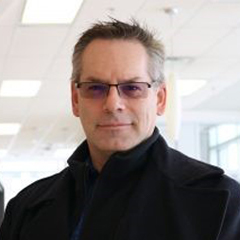 |
Nigel WalthoInstructor III Canadian Scientific Research Diver – a Carleton ProjectAs a coral reef ecologist who teaches scuba-based research field courses in the Bahamas it’s becoming increasingly evident that our Undergraduate and Graduate certified divers are poorly trained to partake in research diving. With the aid of this award Carleton University is moving into position to lead all Ontario universities in producing a new 2½ week Canadian Scientific Diver research field course. This award will help address Federal Laws and the Canadian Association of Underwater Scientists requirements for research dive training. |
Contract Instructor Teaching Awards
The Contract Instructor Teaching Awards recognize teaching excellence by Contract Instructors.
 |
Robert HelalContract Instructor Robert Helal is an Adjunct Research Professor with the Sprott School of Business, teaching Marketing and Strategic Management at both undergraduate and graduate levels. Robert brings to his students a passion to illuminate management theory in the context of business practice. He draws upon over 20 years of international business experience in new product management, research in collaborative innovation, and the use of experiential learning methods to help students strengthen their theory-based critical-thinking skills. |
 |
Gerry KanterContract Instructor My teaching philosophy falls in line with that of professor Henry Mintzberg’s approach, allowing students to learn at their own pace, reflecting on the course material to develop their own theories about the world. In other words, I want them not just to pick up a useful set of software skills, but also encourage them to ask questions and evaluate what is behind the design and evolution of emerging technologies. |
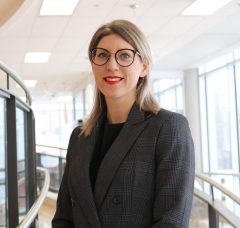 |
Tiffany MacLellanContract Instructor My courses encourage students to perform interdisciplinary examinations of the relationship between law and politics, paying particular attention to the ways in which states attempt to account for mass atrocity. As such, students are invited to turn to traditional empirical sources frequently leveraged in legal studies, as well as non-traditional sources like aesthetic and spatial sites, to grapple with important problems that underlie public international law and theories of transitional justice. I am committed to generating educational experiences within and beyond the walls of the classroom, as demonstrated by incorporating Carleton University Art Gallery exhibition material to illuminate important themes that emerge in my course’s readings. |
 |
Zahra MontazeriContract Instructor As a contract instructor for the past 15 years I have been fortunate in using the latest techniques in imparting knowledge to my students. I use Big Blue Button in CuLearn to facilitate scheduled/unscheduled office hours, a document camera along with symbolic software for experiential activities that reinforce understanding, and hybrid activities such as after class time limited online quizzes with real datasets allowing for many interpretations of the output. |
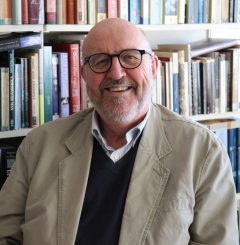 |
Hugh ReidContract Instructor At the risk of sounding somewhat naïve, I would say that my teaching interests are in getting students to see, experience, and understand new ideas, whether they be by perceiving the similarities of people depicted by Chaucer over 600 years ago or by holding and examining an eighteenth-century text in the Archives and Special Collections at Carleton. |
Contract Instructor Teaching Innovation Grant
The purpose of the Contract Instructor Teaching Innovation Grant is to provide support to a Contract Instructor for investigating student learning and alternative approaches to teaching and assessing student learning at the individual, departmental, Faculty, or institutional levels. The overall aims are to foster deep student learning at Carleton University and promote curiosity, reflection, and exploration in the areas of teaching and learning.
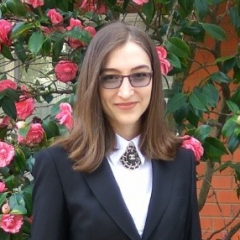 |
Milica StojmenovicContract Instructor Helping Students by Helping Teaching Assistants: Testing the Effectiveness of iPadsThis grant will enable the study of the effect of iPad use on the effectiveness and efficiency of Teaching Assistant (TAs), and the subsequent effects on student learning in Discrete Structures (COMP1805). Given the ongoing growth trends in student enrollment in Computer Science – which means larger classrooms and an accompanying larger overhead – there is a pressing need to study new ways of increasing the effectiveness and efficiency of teaching and assessment methods. |